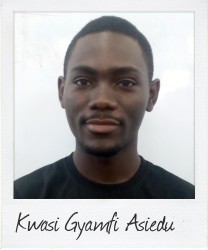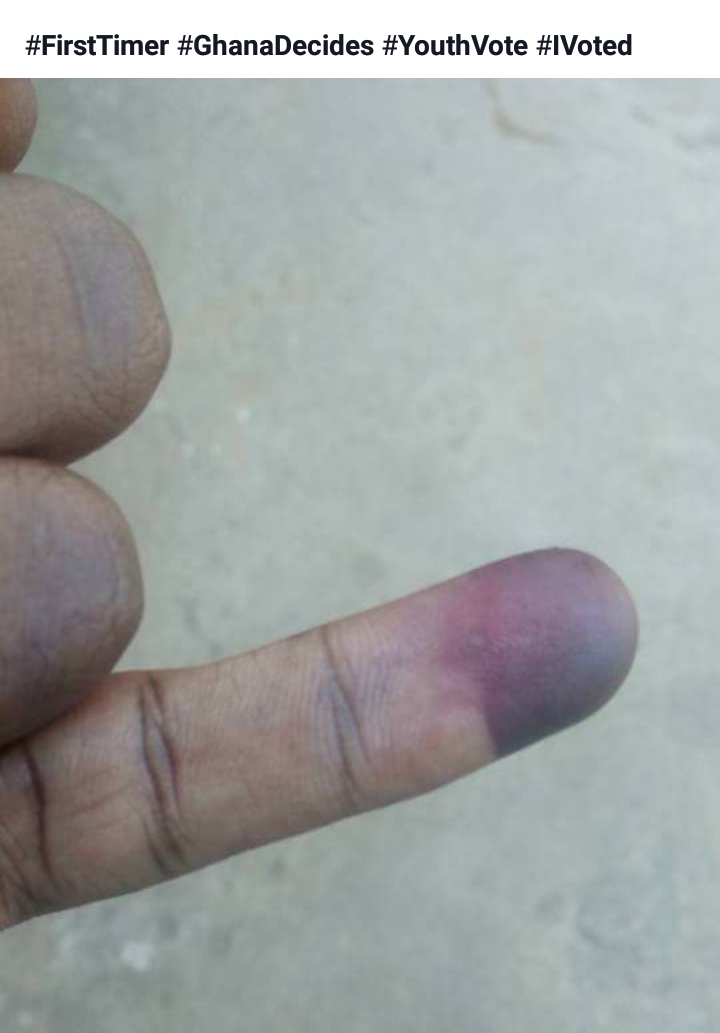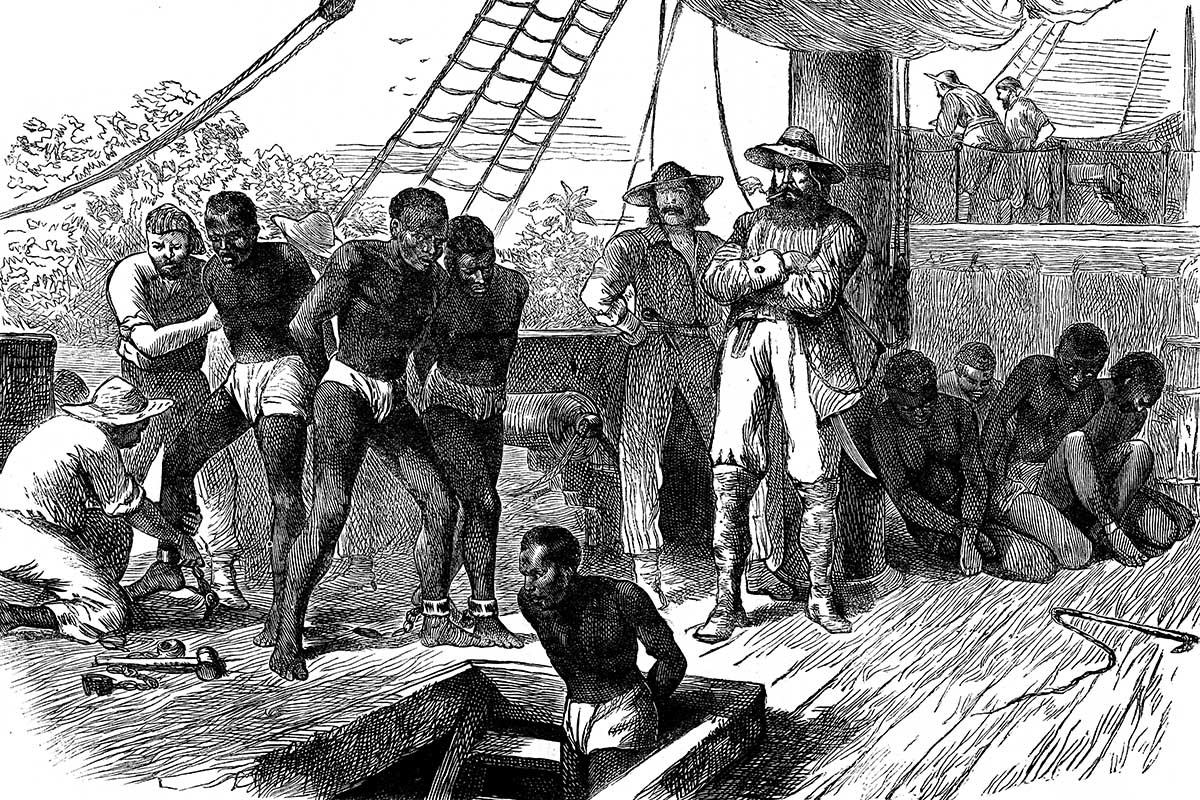“Ghanaians have a lot to make them proud”
December 19 Millions of Ghanaians turned out on December 7 to elect a new set of parliamentarians and a president who would govern the country for the next four years. Kwasi Gyamfi Asiedu, 20, a Commonwealth Correspondent from Ghana, cast his ballot and reflects on the positive experience of a well-run national election.
Millions of Ghanaians turned out on December 7 to elect a new set of parliamentarians and a president who would govern the country for the next four years. Kwasi Gyamfi Asiedu, 20, a Commonwealth Correspondent from Ghana, cast his ballot and reflects on the positive experience of a well-run national election.
As a first-time voter, I had been looking up to Wednesday, December 7, 2016, for weeks. With much excitement, I turned up at my local polling station to cast my ballot. I was not prepared to let the chance of participating in this very important civic activity pass me by.
The results were announced two days later with opposition leader Nana Akufo-Addo emerging as the winner with over 53 per cent of the votes. This is the first time a sitting president has been voted out of office and the opposition has gained an emphatic majority in the country’s Parliament.
However, the most important thing for me that has happened these past weeks leading up to and the days after the election has been the conduct of my countrywomen and men. They have been highly engaged in the process, right from analysing the manifestos to attending campaign rallies, through to queuing to vote and the counting of ballots.
Ghana has been cited as ‘the beacon’ of democracy in Africa so many times over the years that it may seem, to some, a cliché. But we have proved that this enviable accolade is not just talk. It does have significant action to back it up.
To begin with, for the first time the head of the Electoral Commission is a woman, and she led arguably the most efficient, inclusive and transparent electoral exercise this country has ever experienced. For example, I voted within three minutes of reaching my polling station, unlike in previous elections where voters had to wait in line for hours. The elderly, pregnant and nursing women, and the disabled were all given preferential treatment at polling stations. The commission also proved its constitutionally-independent status by declaring the accurate results only when it deemed fit; resisting calls from some quarters for an early announcement.
The media was also up to the task of probing the candidates, informing the public about the voting process and alerting officials of any discrepancies on voting day. They behaved responsibly and only reported independently-verified information to avoid the spread of false reports.
The youth were well informed and turned out in their numbers to vote on election day. They also used social media to encourage their friends who had planned not to vote to also turn up, especially because the process was so smooth. Unlike in other countries, the internet was not blocked and social media was awash with harmless jokes and memes, thanks to young people. This perhaps reduced the tension that had accumulated over the many months of campaigning.
There was also diversity in the seven candidates who stood for president. They included a woman (a former First Lady), a disabled candidate (from Ghana’s oldest existing party) and an independent candidate.
These candidates behaved in a respectable manner with all six conceding defeat to the president-elected. President John Mahama accepted the results, called president-elect Nana Akufo-Addo to congratulate him and promised to help with a smooth transition. The two men have already met to formally begin the handing over process, which ends on January 7, 2017, when the new president will be sworn in. The five others also called – or in one case visited – the winner at his residence to send their congratulatory messages.
The president-elect has been gracious in his victory and promised to work in the interest of all Ghanaians and not only those who voted for him.
But the most impressive has been the way Ghanaians, especially supporters of the winning candidate, have celebrated their win. Throughout the night and early morning after the results were declared, they danced and sang along to the campaign songs of their main opponent.
Everybody is back to work or school as normal and the nation already feels unified just days after the end of a strongly contested general election. It is with no surprise that many election observer missions gave our election a clean bill of health. The Commonwealth Observer Group in its interim report said “we commend and congratulate the Ghanaian voters, the Electoral Commission and polling staff, the political parties, the citizen observers, the media and the security forces for their respective roles in ensuring the success of the electoral process thus far.”
The interim report concluded by saying “…it is our hope that by bringing this electoral process to a successful conclusion, Ghana will again serve as an inspiration and beacon for the rising tide of democracy throughout the Commonwealth.”
I have felt more proud to be Ghanaian in these past few days, and it is my belief that my fellow citizens feel the same. But it is certainly our dream that we become the norm rather than the exception, and that the leadership of all countries would emulate the exceptional statesmanship ours has demonstrated over the years.
Long live Ghana. Long live Africa. Long live the Commonwealth.
Photo credit: #FirstTimer #GhanaDecides #YouthVote #IVoted – by Kwasi Gyamfi Asiedu
………………………………………………………………………………………………………………
About me: I am Kwasi, a journalism student from Ghana. I hope to use my skills to tell positive stories about marginalised communities in the world, with the belief that these stories would force action that improves the lives of the people.
………………………………………………………………………………………………………………
Opinions expressed in this article are those of the author and do not necessarily represent the views of the Commonwealth Youth Programme. Articles are published in a spirit of dialogue, respect and understanding. If you disagree, why not submit a response?
To learn more about becoming a Commonwealth Correspondent please visit: http://www.yourcommonwealth.org/submit-articles/
………………………………………………………………………………………………………………




